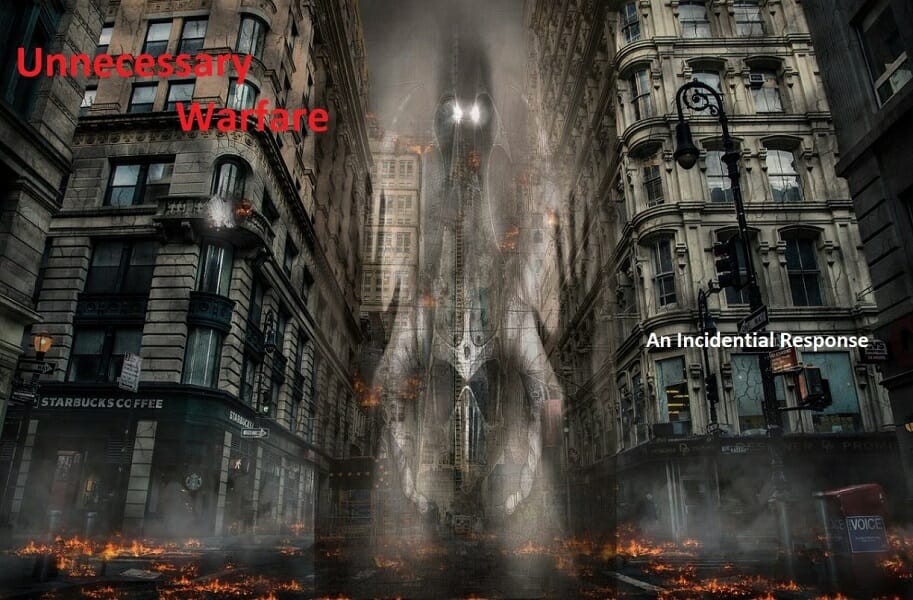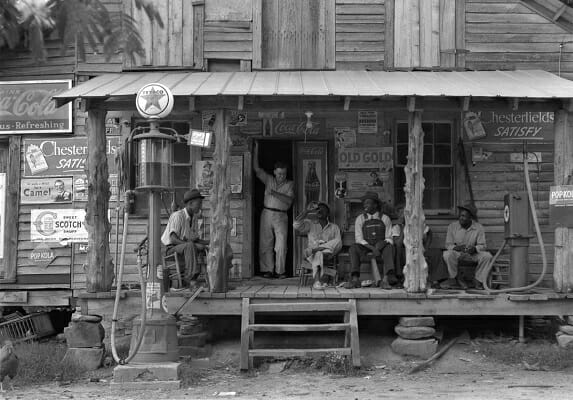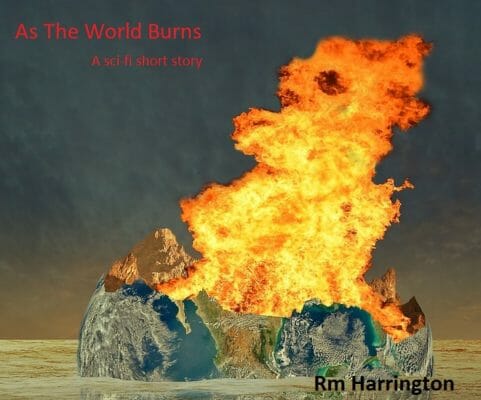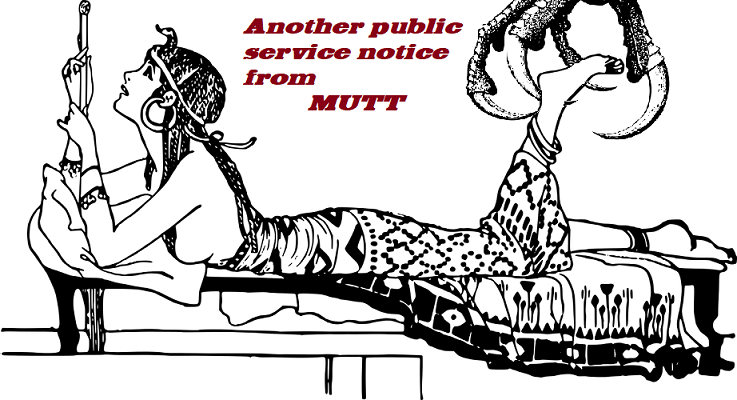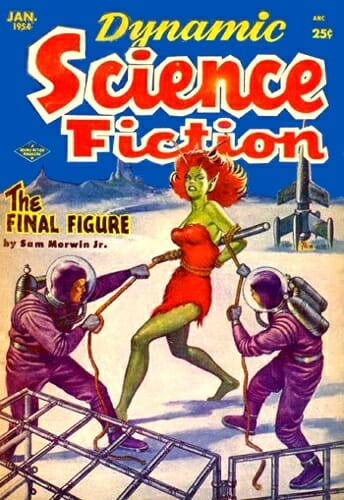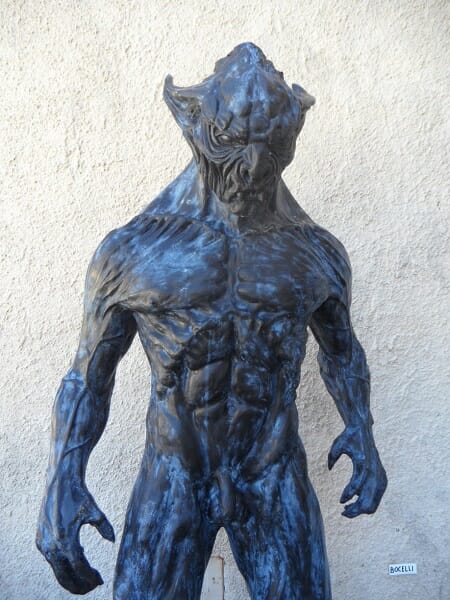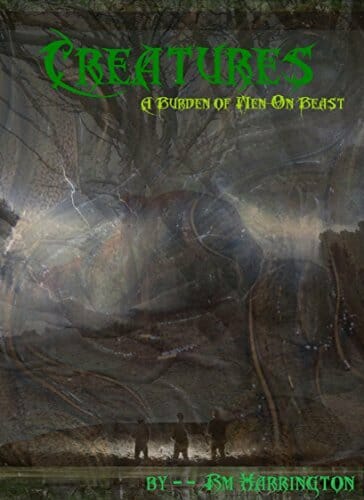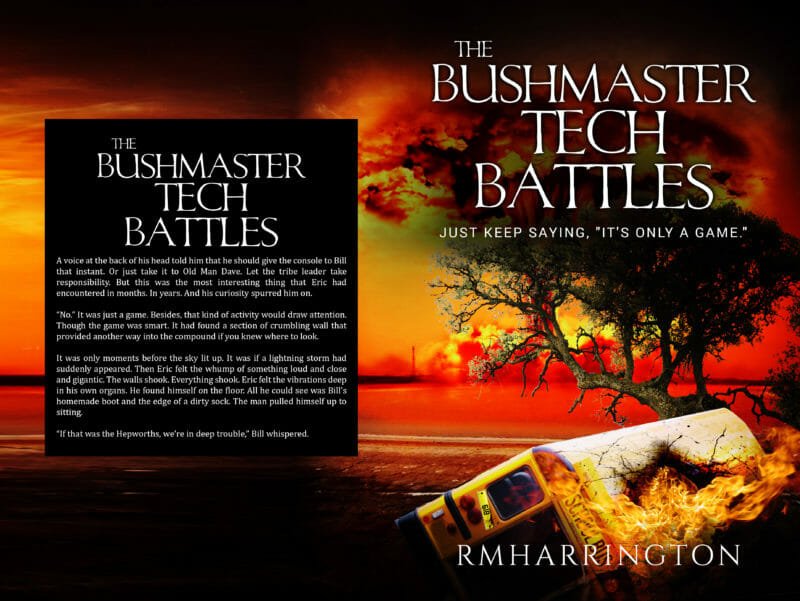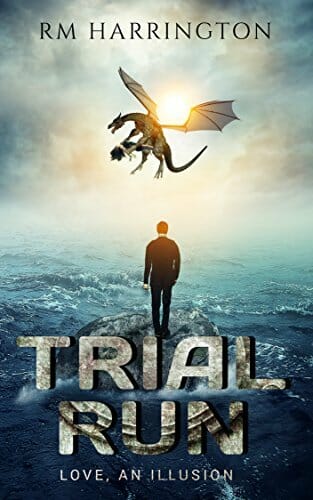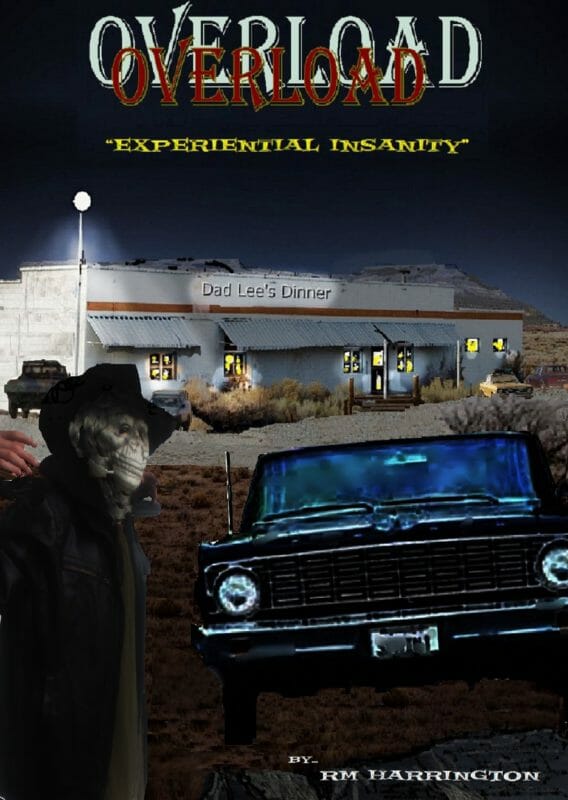Alien Warfare, The Orb – A Free To Read Science Fiction
 Alien Warfare May Not At First Seem So Alien
Alien Warfare May Not At First Seem So Alien
In the following free to read science fiction tale of alien warfare, seven marines encounter something not quiet normal. Herein, I am not trying to craft a tale of awesome new technology, nor a tale of immense expanse into alien lifestyles. In fact, the people in this story are normal, marines for certain yet normal as go the ways of men and their activities. I do hope you enjoy this Free To Read Rm Harrington presentation.
A Free To Read Science Fiction Short Story: Alien Warfare, Incident Involving Alien Technology
Prelude, Scorched Alien Warfare
Stranded alone in the blazing scorch of the Iranian Lut Desert, Cramer felt trapped beneath endless sunlight and eternal layers of shifting sand dunes. Sweltering was a good word; hellfire was better. The press of his combat gear seemed unbearable, like a custom-molded oven crafted in the fashion of a tall, lean U.S. military officer. A small hook separated the gear into seven pieces. He pulled the pin. Weight and heat dropped away from his body. Then he tugged a zipper and a thick parka and BDU also fell away. Out of breathe, energy and feeling feverish, he sank to the ground, embedding knees first into the fiery sand only barely removed by the fallen parka. Within him was a jittery need to take action, any action, but to what effect?
On a far distant level of thought, Cramer knew that something was dreadfully disordered. Rather than streaming sweat, such moisture should flash freeze on contact against his skin. Rather than sunburn in his eyes, there should have been ice crystals in his nostrils. Something was dreadfully wrong. Somehow, he was alone and in a different place, perhaps even dying… And no one would ever know his story.
The Beginning, Icy Alien Warfare
His G-shock’s thermometer displayed -5 degrees Fahrenheit. Icy was a good word; glacial was better. His thick winter BDU was underneath a snow-camouflaged parka. With each step, his military-issued snowshoes dug into the snow, an invaluable but limited aid for maneuvering. To keep it slightly warmer than the surroundings, he kept his M4 rifle snugly hid between two layers of clothing. A small Velcro patch on his chest read “Cramer”.
Clouded with snow, strong winds gusted from the Northeast. Visibility was low. Only the IR tags of his teammates shone through a small eyepiece on his helmet. Cramer could make out movement, but identification as friendlies was solely dependent on the visibility of the IR tags. Six soldiers were under his command: two riflemen, a medic, an automatic rifleman, a specialist and a communications expert.
The squad circled around a number of isolated brutalist buildings. Heaps of snow covered the roofs. An abandoned snowplow jutted from a nearby snow bank. Roughly half a mile of dunes, wind swirls and white lay between the squad and their destination, a nearby town.
Cramer called a halt and then set up a laser-designator on a tripod on top of a dune for purpose of scouting the town. The squad members branched out, some taking up guard positions while others set up camp. White tents bathed beneath the glint of yellow chemlights took shape between snow dunes. Each squad member also made use of a chemlight.
The communications expert ran up to Cramer.
“Sir, camp is up.” The expert said.
“Good job, Wilke,” Cramer said. “Now get some rest. We move out at 2300.”
For a few moments, Wilke stood still, and then said, “Sir. It’s 2000 now. Three hours of sleep seems rather short.”
“I got guard duty, soldier,” Cramer said. “Stop wasting time. You are dismissed!”
Wilke turned to the men, shouted the orders, and then made way to a nearby tent. The others followed suit, jumping inside various tents and zipping up for wind proofing.
Feeling the read. Share with friends. I need your help.
Turning back to the laser-designator, Cramer set focus on the target town. Winds were dying down. Vision improved. Under their BDUs all men wore heated vests. Higher-ranking military figures and government employees advised keeping the vests set well above bearable even over concerns about the life of the batteries. To the contrary, field-level officers and captains typically reprimanded marines who turned the heat up too high. Yet when in the field, a quick response to discomfort was normal.
Having long ago decided that feeding power to his visioning devices was more important than personal comfort, Cramer often turned the vest completely off. It made for easier tracking of his squad, better perception of his surroundings, and increased the ease of peeking through the helmet cam with a simple movement of his eyes. Had such behavior not been his current practice, he might have missed the sudden advancement of enemy troops.
His hand jerked the Velcro of his jacket and the half-concealed M4 rifle beneath. All told, it took less than one second to shoulder the rifle. The actions came natural, his muscle memory taking over as he squeezed the trigger repeatedly. In the thickness of the snow and wind, gunfire reverberated with the least of sound. Grey shadows begin to fall, but it so happened that just as he started firing, the snowstorm returned with fury. Even the small eyepiece of his infrared seeker could not track. Unlike his squad members, the enemy did not wear IR tags.
Sensory aware of new shapes moving near, Cramer dropped sideways into the snowy crest of the dune. Then he engaged by instinct rather than sight, calculating points for fire based on his own method of approach and where he might be if the shoe was on the other foot. Then came a hint of gray too close for comfort. Cramer fired at near point blank range. The target went down and rolled right and out of sight. Incoming fire came from multiple directions. They were confused, not certain of his location, firing only in his general direction. The one he had just shot must have come in by accident.
Cramer adjusted aim, saw flashes of a firing rifle spread in a skyward arc before coming to an end. He pulled a grenade from his load-bearing belt, threw it toward the memory of the out of control weapon. Other members from his squad were out of bed, siding nearby, some flanking wider, all seeking to cover the forward sector. None of them knew how many combatants or from where they came, but all of Cramer’s marines had a nurtured fighting instinct. They would not reveal position or numbers without sighting a confirmed target or clear instructions from leadership.
Cramer chunked a second grenade, making sure it dropped midway between him and the first drop target. The wind howled. The grenade exploded. Clumps of red-tinted snow seemed to do a slow motion glide over their heads. Cramer signaled his men to move left and right around the snow dunes. Vision through the infrared was still out. Wind concealed sound. Odors seemed non-existent.
“Multiple targets bearing 324,” he spoke into the radio. “Several down, perhaps more. No count on total threats.”
The men teamed and crested different dunes in practiced sync. The firefight ended quickly. Three of the enemy already lay broken in the snow, causalities of the grenades. Two more lay face down, dead by rifle shot. Two more opened fire on the squad but they were quickly neutralized by swift action on the part of the automatic rifleman. He had already deployed his LMG’s bipod just to the left of one of vacant buildings. There was reason that they call the man, “Big Flash.” He could swing that heavy LMG around like a kid with a plastic rifle, getting tight grouping in full-auto mode. The pepper-spray from the rifle took out the entire sand dune along with the hostiles that had hidden behind it.
Cramer came near. “Check for vital sighs.”
“Dead,” came responses from all around.
Curious about the incident, Wilke pondered aloud, “Why patrol so far from the reported FOB?”
“I don’t think they were patrolling,” Cramer said. “Heavy backpacks and radio gear; these men were geared for trekking. Search bodies and packs for documents or clues. Something is not square here.”
Several of the team began a detailed probe of nearby packs and corpses. Two men who had previously been checking life signs were standing still beside a small dune. Specialist Johnson and second rifleman Snider stood staring at something off in the white.
“What’s on your minds, marines,” Cramer shouted. “Get doing!”
The second riflemen stirred first, and then poke the specialists into awareness.
“Well,” Cramer said. “Something out there?”
“Not sure,” Johnson said. “For a moment, it seemed I was elsewhere.”
“Yea,” Snider chimed in.
Cramer stepped near and looked into the whiteness where the men stood. The wind had died down again. The IR was functioning without hindrance. He scanned around, saw nothing out of order and then gave it up.
“Get cracking,” he said motioning toward the nearest bodies before backtracking to the first of the grenade consequences. The body lay face down in the snow, a purplish hole in the side of his skull and one arm laying by a thread of sinew to his left. He was obviously dead, yet Cramer readied his rifle before using his booted right foot to push the body over onto its back. Seeing no further threats, he kneeled before the body and began to examine the dead man’s pockets.
At first it was the usual items: bubblegum, extra pair of socks, some bandages. And then a glass orb, a jawbreaker but not made of candy. It was warm, the inside gaseous and with a hint of something hidden beneath the swirls. Without a word, Cramer slipped the thing into storage on his vest.
Again the snowstorm died down. Clouds separated and the sun shimmered through. Like a gleaming white mirror, the snow reflected harsh and blinding light. Infrared optics went wild. Cramer turned his eyepiece off and suspected that the others had done the same. The cold in the wind seemed to ease up. So much so that he figured the biggest complainers in the group would likely turn off the heaters in their vests.
He spoke into the radio, “Anyone wounded?”
No one answered. “Wounded,” he shouted, turning around. “Speak up, for yourself or another.” But the silence continued. Aside from him, the snowy landscape was empty.
 Then a large strong hand embraced his shoulder. But there was no one there. Like a splash of ice water to his face, he sensed a sudden invisible presence. It had to be Big Flash. No other squad member had such large hands. And now he could see other squad members, standing near but not paying any attention to him or his questions. On his shoulder, the sense of a huge hand remained, yet it was a touch without a body.
Then a large strong hand embraced his shoulder. But there was no one there. Like a splash of ice water to his face, he sensed a sudden invisible presence. It had to be Big Flash. No other squad member had such large hands. And now he could see other squad members, standing near but not paying any attention to him or his questions. On his shoulder, the sense of a huge hand remained, yet it was a touch without a body.
With his left forearm, he pressed back and up hard, but the invisible arm would not give way. Shouting, he tried to get the attention of the men nearest his position. No one responded. They were quiet, unresponsive, and reminiscent of walking corpses in a black and white zombie movie. The more he demanded their attention, the more paranoid he became.
Breathing came in gulps of steamy air. Temperature was rising in waves. Twisting, he swung a hard right forearm into the invisible arm that must surely be connected to the invisible hand against his shoulder. The move broke him free. Yelling at the soldiers, he stumbled to the left, removed his helmet and threw it in their direction. Wow, he thought. Hell could not get much hotter yet the idiot squad members were still dressed in full gear. He tugged a canteen from his pack, unscrewed the lid, and emptied the contents over his head and face.
“John! Do something!” Wilke shouted at the medic, but John was on his knees, head low to the ground, face covered with his hands, cowering.
“No,” the medic moaned. “I won’t. I Can’t. No.”
Staring at the medic, Wilke had stopped paying attention to Cramer. It was only for a moment, yet things took a drastic turn for the worse. The officer had began to peel out of his gear.
Then, hearing something whistle in the air, John came to his feet. Something went Whallap. Snow erupted. The ground groaned. Suddenly Cramer lay on white, his kneecaps blown off and his intestines spilling from a deep gash in his belly. Dark tainted snow melted beneath the flow of blood. The man was screaming in pain. Something had to be done.
Wilke was running toward Cramer, but John knew that the communications expert lacked a will for doing what was necessary. The hurt on Cramer’s face was an agony to see. Deformed. Ripped open. He bore a striking resemblance to that of an old battle buddy that John had once seen succumb to an IED attack. There was only one humane solution to the hellish moment.
John removed a 9mm pistol from the holster on his chest plate and started toward Cramer, his intention obvious and committed. Someone, multiple people, started screaming.
Wilke turned, saw what was in the making and moved to intercept the medic.
John dodged right and came up aiming; Cramer’s head the clear target.
Wilke slipped in the snow, went momentarily down.
Someone from behind wrestled an arm around John’s neck. Wilke lunged forward and knocked both fighters backwards. A muffled bang followed, the 9mm jumping in John’s hand.
Wilke backed away, blood on his hands. John lay on the snow, a circle of red spreading from his neck. Wilke snatched up the pistol and flung it into the distance. Something whistled.
Wilke hit the ground, hands over his head. A mortar landed just off to the left. More mortars followed. Explosions upturned frozen ground, instantly vaporizing snow, ice and human body parts. Black mist drifted here and there. Bits of ground and chunked flesh rained across the men.
The remaining two riflemen, Big Flash, Johnson the specialist and Wilke quickly saw opportunity to seek cover. They moved as a team until suddenly the specialist stood to his feet and race out into the snow. He was shouting along the way, ripping at his face with his fingernails.
An air raid siren went off. The sound of heavy machineguns filled the air. The surrounding snow took on the appearance of a sandy desert. The nearby empty apartment complexes came alive, shimmering like cartoon drawings in a cheap comic book. A blazing white full-might sun prevailed over the midday sky.
But it was not yet over. Some of the men heard the sounds of a Stryker firing in the far distance. Others heard voices and music. Big Flash heard the thumping sound from the MK.19 grenade launcher, but saw no sign of the Stryker. The second rifleman saw Technicals approaching their position: Toyota Hiluxes with heavy machine guns mounted on flatbeds and ragged men gunning them.
The men, suddenly working as individuals rather than a team, ran around the snow dunes, digging trenches, setting up machine gun nests and trying to authorize close-air-support. There was nobody on the receiving end of the radio, nor were there any Technicals or even nearby combatants. Sometimes, in weird flashes, they understood the situation but could do nothing in the order of taking control.
In one brief moment of sanity, Wilke saw it clearly. They were alone out here, soldiers jumping, digging, crawling and shooting around a few snowy dunes in the middle of nowhere. Screaming. Shouting. Arguing. Then he too was back in the battle.
Ending, Hallucinatory Alien Warfare
When it was all over, Cramer wrote up a report. It went something like this:
Away from the others, he was on his knees, looking up into a hallucinatory sun, panting for breath, and freezing to death. He felt absolutely delirious. After having removed his BDU and parka, he had poured water over his head and felt the fire as it flash-froze to his flesh.
But along with the BDU and parka, had gone the orb.
For a short time, he stared emptily at nothing. The mighty desert sun devolved into a gray shimmer behind winter clouds. The tan desert sand, as if his vision were losing color, turned into glaring white snow. And finally he realized that the burning on his skin resulted from layered ice and cold. He was down on the ground, near naked in the deadly minus five degree Fahrenheit arctic winter.
How he managed to get back into his gear remains a mystery to all who have heard the story. But Cramer knew the answer. Unlike most marines, he was accustomed to functioning without use of the integrated vest heater. That simple pattern of behavior had conditioned him to endure extreme cold, had saved both him and his men.
Feeling the read of Alien Warfare, The Orb — Share with friends. I need your help.
Before packing back into the warmth of his clothing and armor, Cramer had used a discarded rifle to dig the orb out of his vest. Then, warmed and moving freely, he turned towards the others. They were acting crazed, even as he had. He figured more than one orb. In fact, he figured one for each of the fallen hostiles. Seven to seven.
He started with Wilke only because the communications expert was nearest of the men. Removing the orb came as a bit of a battle. Wilke was intent on plugging a few 9mm shots into Cramer’s head. And just touching the orb was a calculated risk. Something in that swirl of mist stirred a desire to have it and to keep it. Even though the first hallucinatory effects had come on slowly, he worried that a second dose would hit lots quicker. And indeed it did.
Within moments of touching the orb in Wilke’s pocket, Cramer’s blood pressure spiked, his ears rang and his heart seemed to take on the whump, whump, whump of a helicopter’s blades. No. That’s what he was hearing, a helicopter. All around him, the snow blurred, shifting and churning until he was standing knee deep in black swamp water surrounded by snow-feathered jungle. But in that brief instant between the here and the there, he was able to cast the orb into distant snow.
Wilke came around quickly, looking at him funny and seeming to know exactly what had happened. “Unbelievable,” he said. “Nothing like that. Ever.”
“Start helping the others,” Cramer said. “And get rid of it quick. We leave Flash until last. It will be deadly if he fights us.”
When the work was finished, they called in a medevac for John, but it was too late. The orbs remained where they lay until after a CBRNE team arrived. Heavy troops came in shortly thereafter. Listed as dangerous psychedelic devices, no one yet knows the origins of the orbs.
In fact, no one is rightly certain that this war is real.
End
Hi. Rm here. If you enjoyed this free to read alien warfare science fiction story, take a moment to share. Perhaps even leave a comment. Let me know what I do right and what I do wrong concerning the art of telling a story. Also, perhaps you have a story in need of a buyer. Check out my article submission page.
Thanks.
My Kindle books……
Rm Harrington
Author, content writer, programmer and web designer with a heart of Jesus Christ. First published works appeared in The ST Informer back in 1989. Other publishes include software reviews in Atari Explorer, short stories in The Charlotte Spectrum, and over 3000 paid content articles all across the Internet. Current published short story works include The Bushmaster Tech Battles, The Clintonian Overlay, Trial Run, and others.
Alien warfare, The Orb. Free to read science fiction tale of alien warfare. Enjoy.

